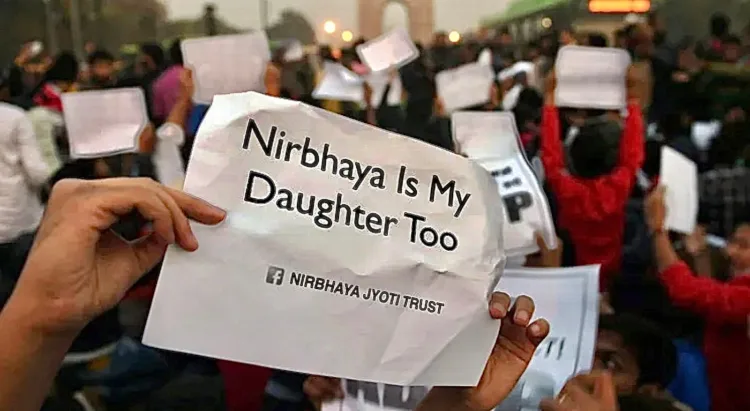The Uttar Pradesh Police have initiated an investigation into the horrific gang rape and murder of a teenage girl in the Meerut district. The body was discovered on a street across from the Ganeshpur forest. Local reports suggest that the girl was brutally assaulted and murdered by four individuals identified as Haseen, Shahrukh, Ikramuddin, and Mohsin.
The police confirmed the incident and stated that the parents of the girl had reported her missing. According to the police, the girl had been missing for a week, and her body was identified by her parents. The family also suspected the involvement of the four identified individuals in the case. The primary suspect has been detained and is currently being interrogated by the police. The body of the deceased girl has been sent for a postmortem examination.
Local reports further detailed that the girl was gang-raped by the four suspects before they brutally murdered her by inserting an iron rod into her private parts. The suspects also allegedly burned her face by pouring acid on it.
The father of the deceased girl informed the police that on 21st July, while he and his wife were at the hospital, Haseen entered their home and abducted their teenage daughter. The missing complaint was subsequently filed on 22nd July.
The parents of the girl identified the body and alleged that Haseen, Shahrukh, Ikramuddin, and Mohsin had gang-raped and murdered their daughter. They have demanded severe punishment for the suspects.
According to the police statement, no formal complaint has been filed against the suspects yet. The primary suspect remains in police custody and is undergoing interrogation.
Nirbhaya Case
The 2012 Delhi gang rape and murder, widely known as the Nirbhaya case, involved the brutal rape and fatal assault of 22-year-old physiotherapy intern Jyoti Singh on December 16, 2012, in Munirka, a neighbourhood in South Delhi. Jyoti Singh, accompanied by her male friend Avnindra Pratap Pandey, was travelling in a private bus when six men, including the driver, gang-raped and tortured her and severely beat her friend. After the attack, Jyoti was rushed to Safdarjung Hospital in Delhi and later transferred to Singapore for treatment, where she succumbed to her injuries on December 29, 2012.
The incident received widespread national and international attention and condemnation. It sparked massive public protests in New Delhi and across India, where thousands clashed with security forces, demanding better security for women. These protests led to increased public discourse on women’s safety and resistance to rape. The victim, known as Nirbhaya, meaning “fearless,” became a global symbol of women’s resistance to sexual violence.
All six perpetrators were arrested and charged with sexual assault and murder. One accused, Ram Singh, allegedly committed suicide in police custody on March 11, 2013, though his family and lawyers suspected foul play. The remaining accused were tried in a fast-track court, and on September 10, 2013, four adults – Pawan Gupta, Vinay Sharma, Akshay Thakur, and Mukesh Singh – were found guilty and sentenced to death. The Delhi High Court upheld the death sentences on March 13, 2014, and the Supreme Court of India rejected their final appeals on December 18, 2019. The four convicts were executed by hanging on March 20, 2020. The juvenile involved, Mohammed Afroz, was sentenced to three years in a reform facility, the maximum penalty under the Juvenile Justice Act.
The Nirbhaya case led to significant legal and societal changes. In December 2012, a judicial committee was established to amend laws for quicker investigation and prosecution of sex offenders. Following the committee’s recommendations, the Criminal Law (Amendment) Act, 2013, was enacted, introducing stricter laws and creating six fast-track courts for rape cases. Despite these reforms, critics argue that the legal system remains slow in prosecuting rape cases. However, the case has significantly increased public awareness and the willingness of women to report crimes.
On March 20, 2020, at 5:30 a.m. IST, Mukesh Singh, Vinay Sharma, Akshay Thakur, and Pawan Gupta were executed at Tihar Jail. The execution took place on a gallows specially designed for four people. According to prison officials, the convicts declined the offers of a last meal and new clothes before the execution. They were blindfolded and did not resist as they were led to the gallows; however, Vinay Sharma had a breakdown and began pleading with the guards. The convicts were pronounced dead after hanging for 30 minutes. Mukesh Singh reportedly requested to donate his organs.



















Comments